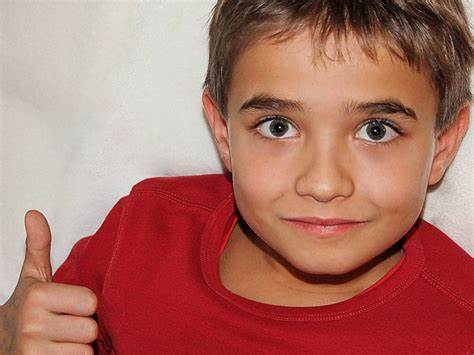The Best Understanding: Why Has My Child Suddenly Developed a Tic?
Introduction
As parents, witnessing the sudden onset of tics in our children can be perplexing and concerning. Tics, characterized by repetitive and involuntary movements or sounds, might leave us questioning their origin and impact on our child’s wellbeing. In this comprehensive guide, we’ll delve into the various aspects of why a child might suddenly develop tics, offering insights and guidance for parents navigating this unexpected journey.
Concerned parents wonder, “Why has my child suddenly developed a tic?” as they seek answers and understanding. Exploring potential triggers and stressors can help uncover Why Has My Child Suddenly Developed a Tic. Environmental factors, emotional stressors, or genetic predispositions could be contributing to Why Has My Child Suddenly Developed a Tic.

Types of Tics
Tics come in different forms, each presenting its unique characteristics. Motor tics involve movements, such as blinking or head jerking, while vocal tics manifest as sounds, like throat clearing or grunting. Understanding these distinctions is crucial in deciphering your child’s behavior.
Understanding Why Has My Child Suddenly Developed a Tic requires careful observation and possibly consultation with medical professionals.
Recognizing Tics vs. Normal Childhood Behavior
It’s natural for parents to observe their child’s behaviors closely, but distinguishing between normal developmental actions and tics can be challenging. Red flags may include the frequency and duration of the tics, their impact on daily activities, and any correlation with stress or excitement. While some behaviors are transient, others may be indicative of an underlying issue.
Parents often wonder Why Has My Child Suddenly Developed a Tic, prompting a thorough exploration of potential triggers and underlying factors.
Common Causes of Tics
The sudden appearance of tics can be attributed to various factors. In addition to external factors like stress or schedule changes, genetic predisposition also plays a part in the severity of symptoms. Deciphering the possible connection to neurological disorders, such as Tourette syndrome, is crucial to understanding the reason for your child’s abrupt tic onset.
Seeking support from pediatricians or neurologists can provide insights into Why Has My Child Suddenly Developed a Tic abruptly and guide appropriate management strategies. Parents grappling with Why Has My Child Suddenly Developed a Tic often benefit from professional guidance to navigate potential triggers and treatment options effectively.

When to Seek Professional Help: Navigating the Path to Understanding
The decision to seek professional help is a pivotal moment in your journey as a parent facing the sudden onset of tics in your child. It’s essential to navigate this path with a keen awareness of when intervention becomes not only beneficial but imperative. The underlying causes and seeking professional guidance can shed light on why has my child suddenly developed a tic.
Firstly, transient tics, those that occur for a brief period and then resolve on their own, may not necessarily warrant immediate professional intervention. These tics are relatively common in childhood and often don’t require extensive medical attention. However, if the tics persist beyond a few months or worsen in intensity, it’s prudent to initiate a dialogue with your child’s healthcare provider. Observing changes in their environment and daily routines may reveal clues as to why has my child suddenly developed a tic.
Persistent or worsening tics may be indicative of an underlying condition that requires professional assessment. Additionally, if the tics are interfering significantly with your child’s daily life, such as disrupting their school performance or social interactions, seeking help becomes crucial. Recall that early intervention frequently results in better outcomes and more efficient management. Why has my child suddenly developed a tic.
Furthermore, if you notice any accompanying symptoms or behaviors that cause distress to your child, seeking the expertise of a healthcare professional is paramount. This may include signs of anxiety, depression, or any other emotional challenges associated with the presence of tics. Identifying any recent changes in their life can assist in understanding why has my child suddenly developed a tic.
The process of seeking professional help typically begins with a visit to your child’s pediatrician. A pediatrician can conduct a thorough examination, including a review of your child’s medical history and an assessment of their overall wellbeing. From there, they may recommend consultations with specialists such as child psychologists or psychiatrists who specialize in neurodevelopmental disorders.
Remember, as a parent, your instincts play a significant role. If you sense that your child’s tics are more than just a passing phase and are impacting their quality of life, do not hesitate to advocate for your child. Trust your observations and seek out professionals who can provide the expertise needed to unravel the mystery behind your child’s sudden tic development. Recognizing the potential role of genetics and neurological factors is crucial when investigating why has my child suddenly developed a tic.
In essence, seeking professional help is not only about addressing the immediate concern but also about fostering a supportive network of experts who can guide you and your child through the entire process. It’s a proactive step towards understanding, managing, and ultimately overcoming the challenges associated with tics, ensuring a brighter and more confident future for your child.
Diagnostic Process
The diagnosis procedure includes a detailed review of your child’s medical background., a physical exam, and psychological assessments. Healthcare providers work to rule out other medical conditions and gain a comprehensive understanding of the factors contributing to the tics.

Treatment Options
The journey toward managing tics includes various treatment options. For transient tics, watchful waiting may be appropriate. Behavioral treatments, such as Comprehensive Behavioral Intervention for Tics (CBIT) and Habit Reversal Training (HRT), provide effective tactics. To treat symptoms, doctors may occasionally prescribe drugs such as alpha-2 adrenergic agonists and antipsychotics.
Parental Support and Involvement
Establishing a nurturing atmosphere is essential to assisting your child in overcoming the difficulties related to tics. This involves educating family members, teachers, and friends about tics and advocating for your child’s needs at school. Your active participation can have a big impact on your child’s general wellbeing.
Coping Strategies for Children
Equipping your child with coping strategies is essential. It is possible to equip children to traverse their path with resilience by teaching them coping skills for stress and anxiety, promoting open communication, and cultivating a good self-image.
Real-life Stories and Successes
Real-life stories offer inspiration and hope. Many families have successfully coped with sudden onset tics through a combination of professional guidance, support networks, and a positive mindset. These stories underscore the importance of early intervention and the potential for positive outcomes.

Conclusion: Why Has My Child Suddenly Developed a Tic?
In the realm of parenting, the sudden emergence of tics in your child may initially feel like uncharted territory, filled with uncertainty and concern. However, by embarking on this journey with a proactive and informed approach, you not only gain a deeper understanding of your child’s condition but also equip yourself with the tools needed to navigate the challenges ahead.
As we conclude this exploration into why your child has suddenly developed a tic, it’s crucial to emphasize the power of a supportive network. Making connections with other parents who have gone through comparable experiences can provide insightful information and emotional support. Online communities, local support groups, or seeking advice from professionals can give a sense of reassurance and camaraderie during this challenging time.
Parents grapple with the question, “Why has my child suddenly developed a tic?” as they strive to comprehend and address the unexpected behavior.
Remember, the road to managing tics is not a solitary one. Healthcare professionals, educators, and your extended support network all play pivotal roles in ensuring your child receives the care and understanding they need. While the journey may present obstacles, it is also an opportunity for growth, learning, and resilience for both you and your child.
In closing, the sudden onset of tics in your child is a challenge, but with knowledge, support, and a proactive mindset, it can become a stepping stone toward a brighter future. Your deep love and devotion are evident in your awareness of and response to your child’s needs, which will surely enhance their achievement and general wellbeing.

